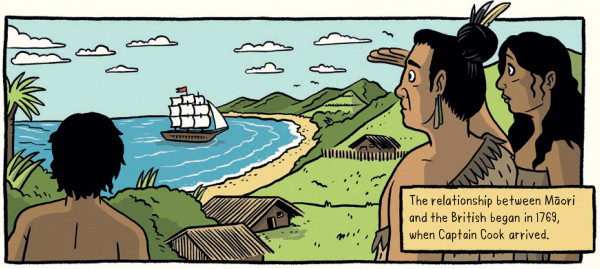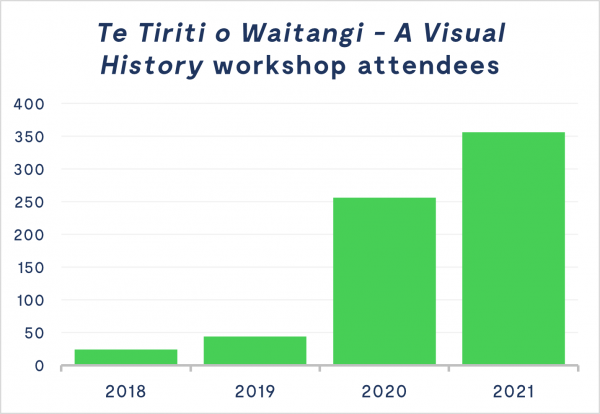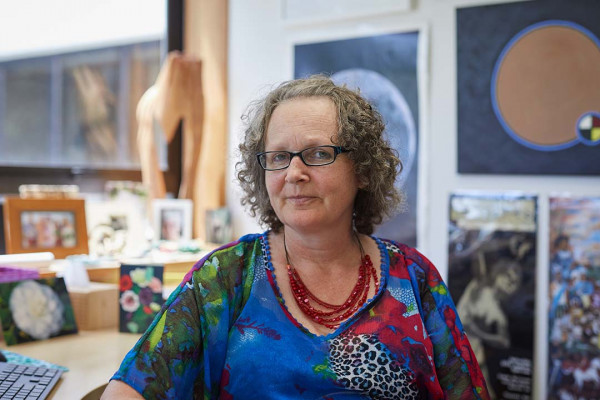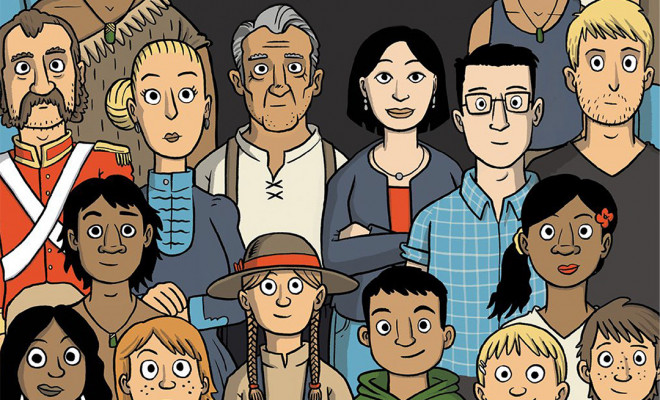Te Tiriti o Waitangi is a widely misunderstood document. But Te Tiriti, the terms and conditions by which Europeans and others came to this land, has implications across all parts of Aotearoa. The tertiary education sector is no different. A growing number of educators are stepping up and discovering what that means.

Extract from The Treaty of Waitangi by Toby Morris with Ross Calman and Mark Derby
Find out more about Ako Aotearoa's workshop Te Tiriti o Waitangi – a Visual History
An unequal playing field
Consistent breaches of the treaty over many decades and the wider effects of colonisation have had a lasting impact on Māori. This is seen clearly in the stark inequities across tertiary education. Heather Came, a previous facilitator of our Te Tiriti workshop and Head of Public Health at AUT, says the impact of racism on Māori students is cumulative. “It’s not like you can just shake it off. It means that [Māori learners] don’t necessarily want to be on campus. Unequal outcomes show that the system is not working”.
Catherine Delahunty, one of the workshop’s current facilitators, says research shows that tangata whenua students enroll in tertiary education “but don’t always have the support in the institutions to complete study”.
Preparing for the future by studying the past
Ako Aotearoa created this workshop to realise the Tertiary Education Strategy’s goal of establishing an education system that honours Te Tiriti o Waitangi. "In my view, this is perhaps our most important professional development activity” says Dr Joseph Te Rito, Ako Aotearoa’s Deputy Director Māori. “It exposes tertiary educators to the actual text of this foundational document of Aotearoa, and in doing so can open their minds and hearts towards Māori learners”. Since piloting the workshop, the number of yearly attendees has risen sharply from 24 in 2018 to 356 in 2021.
Heather says interest in Te Tiriti has been rising for a long time. “It is [due to] decades of treaty work, decades of challenging racism in the media, and in the education sector. It is due to citizens learning about New Zealand history and then having courageous conversations with others and the ripple effect of that”.

Te Tiriti o Waitangi – A Visual History workshop attendees over time
Christine Herzog, an experienced treaty educator and one of the workshop’s current facilitators, echoed this and spoke about the shortage of treaty-education opportunities available. “Ako has had the insight – not just to offer courses that are open to whoever wants to come – but to offer a whole suite of courses that take Te Tiriti and tikanga knowledge further. The question isn’t just ‘what’s the history?’ but ‘what are the implications of the history for what we do?’”
Te Tiriti o Waitangi – a Visual History is delivered by Ako Aotearoa’s expert facilitators Daniel Tāwhai (Ngāti Porou and Ngāti Uepohatu), Catherine Delahunty, Heather Came, and Christine Herzog, who each have a wealth of experience as Treaty educators and as tertiary educators. Catherine says that as educators become more knowledgeable about Te Tiriti “they will become champions for honouring it, by being willing to engage in structural change that supports rangatiratanga in more than words”.
Christine added that when educators change their practices to benefit Māori, it often has the effect of benefiting many others as well. This is supported by research. “It narrows the gap, but everyone benefits. This is something that improves education for everybody”.
Learning & un-learning
Workshop participants learn to challenge their preconceptions, acknowledge a range of perspectives, and consider how this one-page document from 1840 is relevant to adult learners today. “Under Article 3 we have an obligation for Māori to have the same rights and privileges as British subjects” says Heather. “We should expect equitable representation, but also an equitable number of graduates. Educators have a responsibility to achieve these outcomes, but it’s also the right thing to do”.
The workshop uses a visual teaching guide – The Treaty of Waitangi by Toby Morris (well-known for his illustration work for The Spinoff), with Ross Calman and Mark Derby. The success of this workshop has led Ako Aotearoa to expand our offering of Treaty-centred professional development, adding Addressing Racism in Tertiary Education and Te Tiriti for Organisational Management courses, which focus on further application of the ideas introduced in Te Tiriti o Waitangi – a Visual History.

Heather Came: “It turns on a radar that you can never turn off.”
Feedback from participants has been overwhelmingly positive, while acknowledging that the process of ‘unlearning’ can be confronting too. “This was a superb workshop, challenging and informative, it has radically shifted my attention on the Tiriti and my responsibility” said one attendee. “There is much to reflect on, we haven’t stopped talking about it.”
Sector engagement with our Te Tiriti workshops continues to grow. We know that a better understanding of our nation’s past will lead to better outcomes for Māori learners, and ultimately for everyone. “It turns on a radar that you can never turn off, and so you begin to see the world differently” says Heather. “You realise there’s people other than ourselves”. But she believes that transformational change is what’s needed. “How do we create that environment where people can be themselves, or find their voice? And the voices aren’t all going to be the same. Some of them will be angry, some of them will be sad, some of them will be funny, and some of them will be poetic.”
Te Tiriti o Waitangi – a Visual History is run online each month. We can also provide in-house workshops for your organisation on request. Click here for more information.
